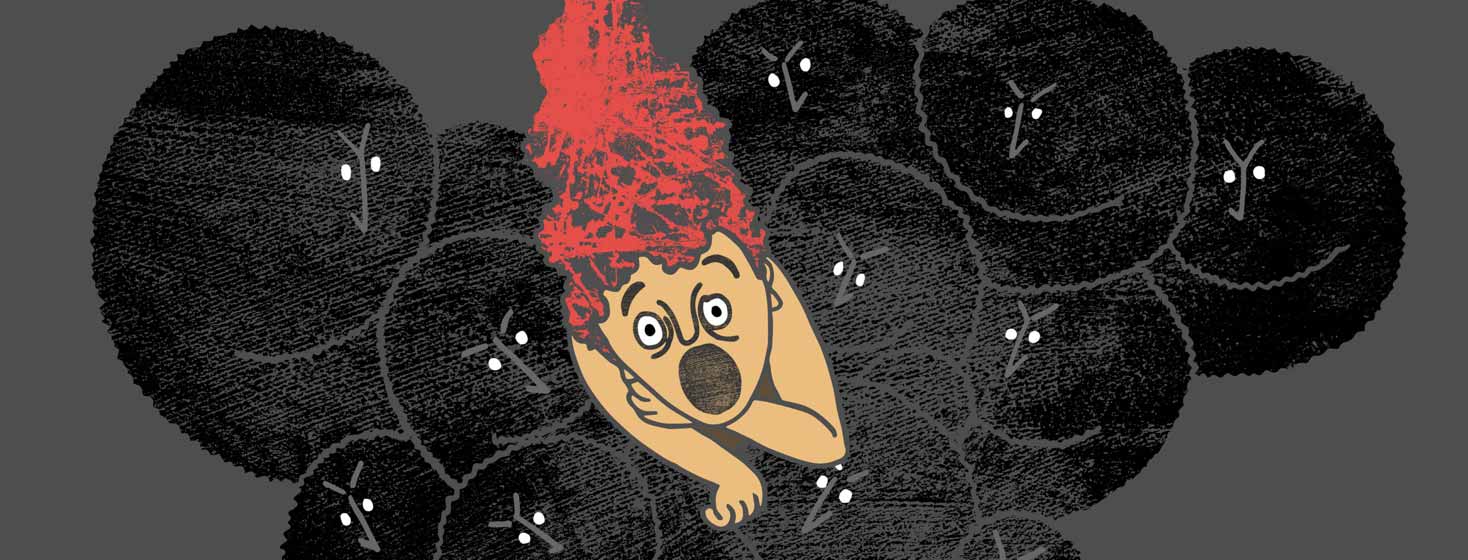Warning Signs Of An Asthma Attack
Asthma attacks can be triggered by so many things: trees, grass, mold, smoke, animal dander—and that big trigger—stress. Because so many environmental factors can bring on asthma attacks, it can be hard to focus on our surroundings to know when an attack will hit.
Rather, many people with asthma have found it more helpful to get in tune with their own bodies and pay attention to their particular asthma attack warning signs. Everyone experiences asthma slightly differently, so it can help to take note—maybe even by writing in a journal—to see what your personal triggers are.
We asked about your asthma attack warning signs
To learn more about what you go through before an asthma attack, we reached out on the Asthma.net Facebook page and we asked you to fill in the blank: “Right before an asthma attack, I feel ____________.”
More than 350 community members answered, and here is what you had to say.
I cannot catch my breath
That gasping sensation is the symptom most reported when it comes to asthma attacks. Likewise, it is the main symptom that the general public recognizes as well. The best treatments for this type of incident is either an inhaler or, alternately, deep or pursed-lip breathing.
“I cannot catch my breath and I feel tired.”
“I cannot breathe. I cannot catch my breath.”
I start wheezing and coughing
Many of you also mentioned coughing, which is the body’s way of removing whatever irritants are bothering the lungs. This symptom, the asthma cough, is treated the same way as any other type of asthma, which is with an inhaler.
“I start wheezing and coughing. Then I start with bronchial spasming and gasping for air. I always have my rescue inhaler with me or nearby at home.”
“I cough out lots of mucus.”
I feel like I am going to have a panic attack
More than a few people shared that their asthma attacks feel very similar to panic attacks—and for good reason. When the airways in the lungs inflame during an asthmatic episode, that lack of air can lead to a feeling of being suffocated. It is absolutely instinctual to panic when we cannot breathe. Several in the community spoke into this, sharing that the best ways to help prevent further panic attacks are to decrease stress and to keep your inhaler close by.
“I feel like I am going to have a panic attack.”
“I begin to panic if I cannot find my rescue inhaler. I struggle to stand up as breathing is easier if upright. I start thinking, ‘How long is this going to last?’”
I feel chest tightness
When airways are inflamed, the sensation felt through the chest for some feels like tightness and constriction. People with asthma commonly feel chest pressure—which some describe as a heaviness on the chest.
“I feel chest tightness, and I cannot talk.”
“My chest is all tight.”
What are your asthma attack warning signs?
First, we want to say thank you to everyone who shared their experiences for this story. You all make this community possible.
Second, can you relate to any of these experiences? We would love to hear about your asthma attack warning signs. Please share with us in the comments below!

Join the conversation